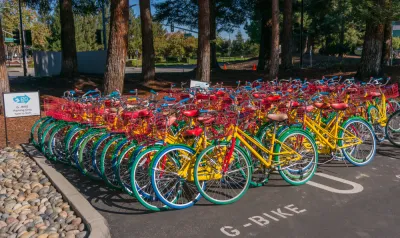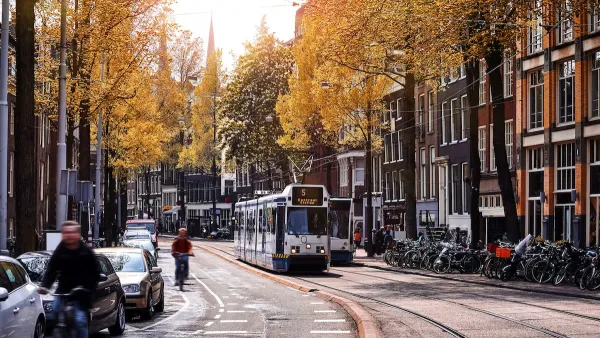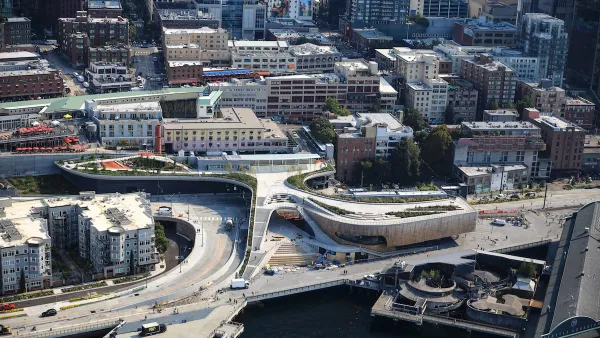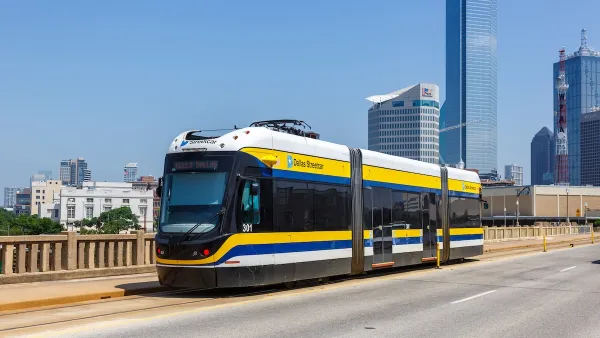This article considers the impacts of driverless cars, or autonomous vehicles, on bicycle planning and what a 'low stress' bicycle route may look like in the future.

There has been a lot of talk recently on the planning impacts of self driving cars, or autonomous vehicles as some call them. There is a recent CBC piece which summarizes many of the issues.
Although there are many planning issues surrounding self driving cars, for a moment I want to focus on bicycle planning. Here in Vancouver, creating cycle routes ‘for all ages and abilities’ has become a focus for Council. In order to do this, the focus has been on the creation of physically separated bike lanes. The design is intended to protect cyclists from the physical danger of vehicles. Or rather, the danger of people driving cars who are not paying as much attention as they should.
But an all seeing, all obeying computer driven car could presumably behave much better. It could be programmed to travel at, say, 20 kph on designed ‘low stress bicycle routes’ and be programmed to give people cycling the right of way. it could avoid certain streets altogether unless required to access a destination.
Instead of having to create separate spaces for different types of street-users because they are incompatible in some way, handing over control of vehicles to computers surely presents the opportunity for safe, low stress shared spaces. There are many planning advantages to this including narrower, more friendly feeling streets, making more efficient use of space.
We would of course have to trust the technology and this will not happen overnight. if you’re out cycling with your eight year old, do you really trust that Google powered autonomous vehicle to react in time when your child swerves out into its path?
We don’t know how the future will evolve. However, I believe it is important to start thinking through some of these scenarios so we’re better prepared as professionals and advocates when these questions and issues inevitably arise down the line.
FULL STORY: Impacts of self driving cars on bicycle planning

Analysis: Cybertruck Fatality Rate Far Exceeds That of Ford Pinto
The Tesla Cybertruck was recalled seven times last year.

National Parks Layoffs Will Cause Communities to Lose Billions
Thousands of essential park workers were laid off this week, just before the busy spring break season.

Retro-silient?: America’s First “Eco-burb,” The Woodlands Turns 50
A master-planned community north of Houston offers lessons on green infrastructure and resilient design, but falls short of its founder’s lofty affordability and walkability goals.

Test News Post 1
This is a summary

Analysis: Cybertruck Fatality Rate Far Exceeds That of Ford Pinto
The Tesla Cybertruck was recalled seven times last year.

Test News Headline 46
Test for the image on the front page.
Urban Design for Planners 1: Software Tools
This six-course series explores essential urban design concepts using open source software and equips planners with the tools they need to participate fully in the urban design process.
Planning for Universal Design
Learn the tools for implementing Universal Design in planning regulations.
EMC Planning Group, Inc.
Planetizen
Planetizen
Mpact (formerly Rail~Volution)
Great Falls Development Authority, Inc.
HUDs Office of Policy Development and Research
NYU Wagner Graduate School of Public Service




























